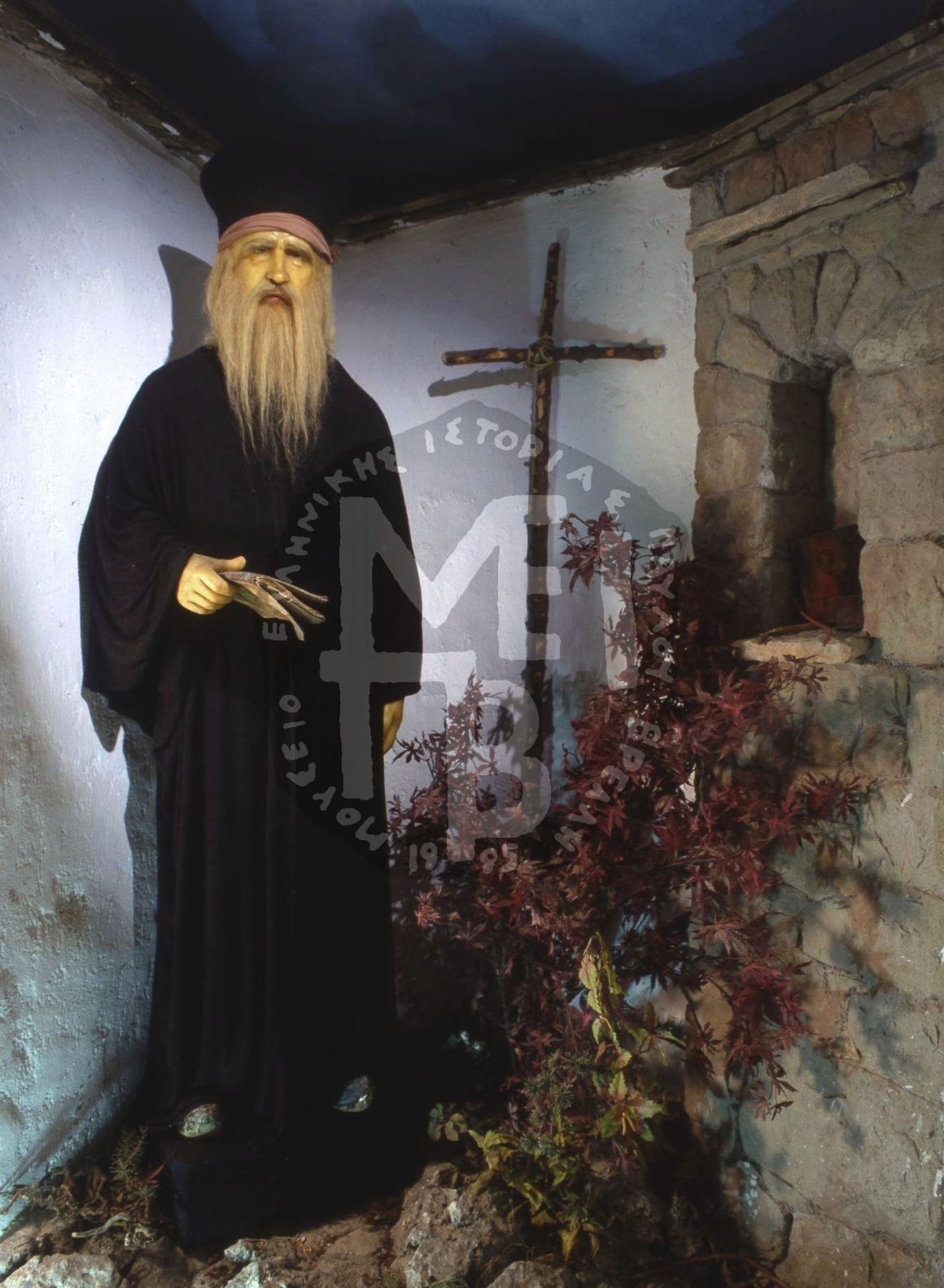“In a crucial and horrible period for the church and the entire nation Cosmas Etolos lived and acted (1714-1779). There were no priests. Illiteracy, cruelty, misery, barbarity were dominant and, worst of all, collective Islamizations were becoming more and more frequent.
His parents’ origin was from Grammeno, Epirus. Cosmas himself was born in Mega Dendro, in the mountainous Trihonida and Etolia, that’s why they called him Etolos. After graduating the famous Vragianos School, at the age of 19, he went to Athos School in Mount Athos. He studied theology, philosophy and philology for 17 years, close to great teachers of the nation like Panagiotis Palamas and Eugene Voulgaris.
In 1760, 46 years old, he got permission from Patriarch Seraphim II to preach, so he started his missionary work all over Greece. He was an eloquent speaker and attracted the crowds. His style was simple and convincing. He simplified what was difficult so that they could understand them. His preaching was not only religious but also social and national; he frequently speaks of ‘the Nation’ and ‘the desirable’.
He fought illiteracy and put a stop to Islamizations by means of innumerable christenings, and for this reason he is considered to be a missionary. He is also considered to be an apostle of national ideas and great teacher of the nation, for his work to the people living on the mountains and the illiterate ones managed to keep their faith and nationality. He made 210 schools of ‘common education’ to enable the Greek children to learn to write and read. He also made 10 schools of higher education so that educated priests and teachers could graduate from them.
While he was alive he was honored by both Christians and Muslims. For instance, I have to mention Ali-pasha held him in the greatest regard as when he was younger he had foreseen the conquests he would later make. His response to Ali-pasha’s question as to whether he would be a sultan is still remembered: ‘You will go to Constantinople but with red beard’, predicting the nature of his death.
He was a man of such radiance and influence it was only natural he would become the target of several groups whose interests were at stake. Thus, they bribed Kurt-pasha of Berati to kill him. He was hung on August 24, 1779. The Patriarchate couldn’t canonize him at the time but this happened in 1961 when it was established to commemorate him the day of his death.
Many of his teachings and prophesies have been saved and still surprise us. Prophesies about ‘the desirable’ (the nation’s independence), prophesies about Epirus and about a number of inventions such as the telephone, the airplanes etc.
He was the first to apply ‘free education’. He also supported ‘you sin when leaving your children uneducated and only care about wealth and estates. You had better leave them poor and literate than rich and illiterate’. In the eyes of the slaves he ideally expressed the logo ‘equality-brotherhood-justice’. Being a feminist he used to say: ‘God made the woman equal to man, not inferior’.
He was a truly peculiar personality, uninfluenced and original. He believed that the religious, moral, economic, social and mental rebirth of the Nation were the only means leading to the uprising and freedom. The desirable to come true; which it did happen after the harvest of the seeds he sowed.
I found numerous of sources referring to his character, by biographers of his time and other writers. With regard to what he looked like, I relied on a particular icon more than others; it is now encountered in St Nicholas church, in Zitsa village, and which our great icon-painter, Fotis Kondoglou had pointed out to me.
In the composition I place Cosmas Etolos on his feet, holding a holy book in his hand, like the ones he distributed by thousands. He is close to the wooden cross he would leave behind when he left a place where he had preached. I built the iconostasi stone by stone at a proper scale so as to match the whole composition.
He is standing on his small pedestal he would always carry with him; he is a small man, old, simple and modest, sweet and mild speaking.”

